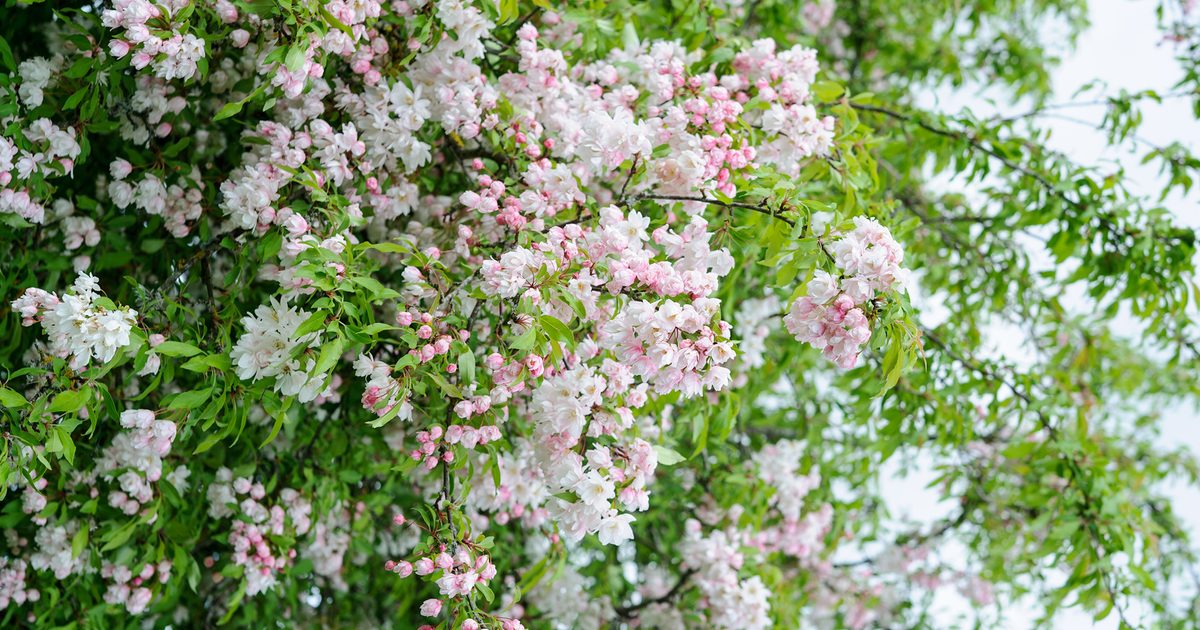[ad_1]
Crab apples are good yard timber. They supply the impression of being good all yr spherical, with fairly blossom in spring, adopted by small, decorative apples, purple or yellow in color, and the autumn foliage furthermore areas on a superb present. The tiny apple fruits are edible, though not of their uncooked state, nonetheless make good jellies and sauces. Crab apple timber are furthermore fairly compact in dimension, which makes them among the many many greatest timber for small gardens. They’re hard-working timber: enticing, productive and good for wildlife.

The place to plant crab apples
Crab apples are hardy timber and tolerant of a diffusion of soils, nonetheless will develop greatest in moist, well-drained soil in full photograph voltaic to partial shade.
On this quick clip from Gardeners’ World, Monty Don reveals you plant a crab apple tree, providing recommendation on what dimension gap to dig to encourage the roots to unfold out, how deep to plant it, and stake it. He furthermore recommends two alternative varieties – yellow-fruited Malus ‘Comtesse de Paris’ and orange Malus ‘Evereste’ – which he is along with to his Cottage Yard:
How one can plant crab apples
Crab apples are greatest planted as bare-root timber in autumn and winter.
How one can maintain crab apples
For the primary few years, make sure your newly planted crab apple tree is appropriately watered in dry durations. All the time give a mulch of well-rotted manure or compost in spring and prune in late winter to take away any ineffective, dying, diseased or crossing branches.
How one can propagate crab apples
It’s attainable to propagate crab apple timber by taking softwood cuttings in late spring or early summer season season. Begin crab apple cuttings after the flowers have fallen. Further sometimes crab apples are propagated by grafting.
Rising crab apples – draw back fixing
Like bigger apple timber, crab apples is probably affected by woolly aphid, fruit tree purple spider mite, caterpillars and apple tree diseases resembling apple scab, apple canker, powdery mildews, fireblight and honey fungus.
Crab apple varieties to aim
- Malus ‘Evereste’ – purple buds open to disclose white flowers in spring, adopted by reddish, orange-yellow fruits in autumn. This vibrant crab apple has a superb conical variety.
- Malus ‘Winter Gold’ – with white spring flowers and yellow fruit; the darkish inexperienced leaves have good autumn colouring.
- Malus x robusta ‘Purple Sentinel’ – a terribly decorative crab apple with pink-white flowers in late spring, adopted by shiny, purple crab apples stick with it the branches longer than frequent, appropriately into winter.
- Malus ‘Pink Glow’ – this crab apple produces single, white flowers in spring, adopted by larger-than-average darkish pink fruits in summer season season.
- Malus ‘Comtesse de Paris’ – this crab apple has pink buds, adopted by white flowers, then very enticing, shiny yellow, barely oval-shaped fruits, that stick with it the branches appropriately into winter.
- Malus ‘Wisley Crab’ – the leaves emerge bronze-red, turning darkish inexperienced because of the season progresses. Delicately scented, reddish-purple flowers seem in spring adopted by darkish purple fruits which are bigger than frequent.
- Malus sylvestris – this crab apple may even be grown as a part of a hedge, with white-pink blossom rising in spring.
[ad_2]